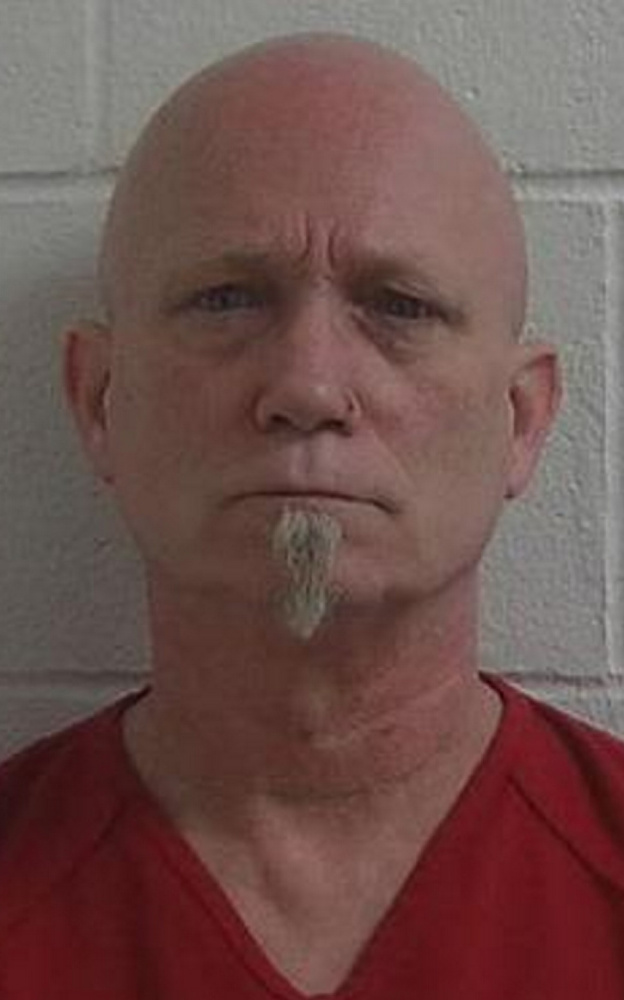A state-licensed clinical counselor, who also did some substance-abuse counseling, was among the 15 people arrested on heroin charges Tuesday in Oxford County as part of what officials have called the largest drug investigation in the county’s history.
Gregory Ford, 54, of Scarborough received a conditional counseling license from the state in 2008.
Roy McKinney, director of the Maine Drug Enforcement Agency, said that his agency reported Ford’s arrest to the state Office of Professional and Financial Regulation, which granted Ford’s license but had no further details on its status.
He has two convictions for misdemeanor charges of operating a motor vehicle under the influence of alcohol. The first conviction was in 2001. The other was in 2011, according to the state Bureau of Identification database.
Ford was inactive as a counselor from September 2010 until January 2011. His counseling license was reinstated on Jan. 6, 2011, two days after his second conviction for operating under the influence. His current license expires on Jan. 31, 2017, according to state records.
Ford also was charged with unlawful possession of oxycodone in 2012, after he was stopped for driving on a license suspended or revoked due to OUI, according to Cumberland County court documents cited by WCSH-TV. The drug charge was dismissed in return for Ford’s guilty plea on the suspended driving charge, the station reported.
Doug Dunbar, a spokesman for the Office of Professional and Financial Regulation, said in an email that state officials are aware of Ford’s arrest.
“The information has been shared with the licensing board’s assistant attorney general. The board will consider what action to take,” Dunbar wrote, adding that a background check on Ford showed no indication of illegal drug use or sales in his background and that Ford had not previously been subject to any disciplinary action.
Those arrested Tuesday were part of a ring that smuggled Mexican heroin through a supplier in Lowell, Massachusetts, to dealers in Maine, who had imported and distributed nearly 18 pounds of heroin since 2013 in various locations throughout Oxford County, officials said. That much heroin represents about 80,000 doses with an estimated street value of $3.2 million, they said.
Ford was transferred from the Oxford County Jail to the Cumberland County Jail in Portland Wednesday evening. Ford declined a request to be interviewed by the Portland Press Herald, according to officials at the jail.
A former supervisor verified that Ford had worked for a number of years at Supervised Community Treatment, a four-person counseling practice located in an office suite at 222 St. John Street.
The group counseled sex offenders referred to their practice by federal and state corrections officials. Most of their clients were prisoners, who had been placed on probation, and had been ordered to undergo therapy for their addiction.
Stephen P. Thomas, a licensed clinical social worker, said substance abuse and addictions often go hand in hand, but the practice was not focused on treating drug abuse.
“Greg didn’t do a lot of substance-abuse counseling at the practice,” Thomas said. “He dealt mostly with sex offenders.”
Thomas said he terminated Ford’s employment at Supervised Community Treatment in January 2012, but wouldn’t say why.
Thomas did say a conviction for drunken driving would be taken seriously because it could compromise an individual’s case in court if it were to become known that a counselor had been convicted.
“This (arrest) was a ramping up of that behavior,” Thomas said.
Thomas lost track of Ford after he was let go, and didn’t know where he went or if he had opened an office elsewhere.
McKinney didn’t have any information on whether other drug counselors in the state have been arrested on similar charges in the past, but said that he has learned from his interactions with people that heroin addiction is a lifelong condition.
“There is no socio-economic boundaries with this,” McKinney said. “They are in recovery for the rest of their lives.”
Dunbar said Ford acknowledged his convictions when he submitted his application for renewal. Licensees are required by law to report criminal convictions within 10 days.
“Cases of licensees being convicted of serious crimes is very, very rare,” Dunbar said in an email. “We administer roughly 40 licensing programs with more than 100,000 licensees. These instances of licensees being convicted of crimes (other than traffic violations or other relatively minor infractions) is quite unusual.”
Send questions/comments to the editors.




Comments are no longer available on this story